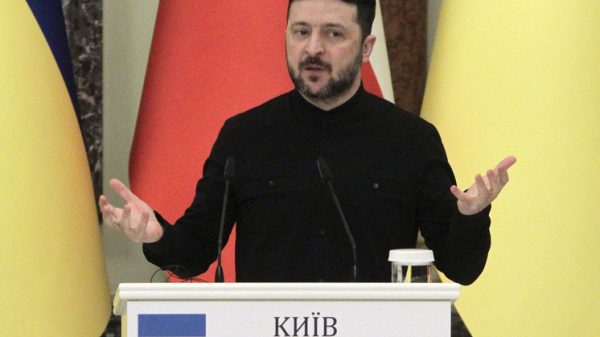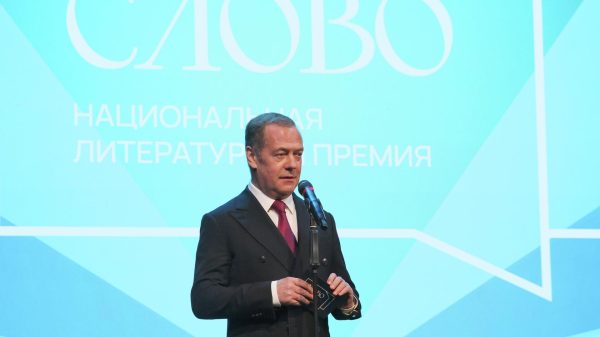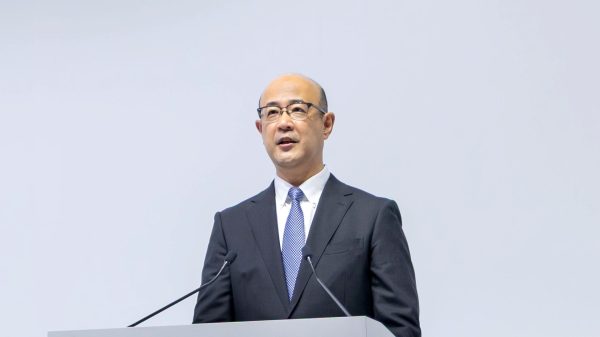 Pep Guardiola (centre) won 12 major trophies during his reign at City. Photo: Getty Images/Michael Regan
Pep Guardiola (centre) won 12 major trophies during his reign at City. Photo: Getty Images/Michael Regan
Appoint Manchester City Management. Appoint managers who have worked for them before. Appoint a member of their coaching staff as your manager. Sign players you suspect they might be interested in. Otherwise, sign players they feel don't fit the bill. Copy their multi-club model.
This has always been the case in English football: the most successful set the template, and the rest followed it. A line can be drawn from the great Liverpool dynasty to the era of Sir Alex Ferguson at Manchester United in the days when English football was a simpler and more isolated proposition. After this, borrowing spread more widely. City Football Group (CFG) imported the Barcelona model of the late 2000s, although not all at once: taking Txiki Begiristain, Ferran Soriano and, finally, when the nest was built, Pep Guardiola.
Of course, it has become much larger. According to Soriano's plan, CFG began acquiring clubs long before Guardiola arrived. The project was unapologetically presented as revolutionary. From a new training base in East Manchester to the acquisition and rebranding, partial or otherwise, of CFG clubs around the world. It attracted the attention of the public, and then success came on the field.
So much so that others seem to have given in to the superiority of the CFG idea. Sir Jim Ratcliffe spoke respectfully of the strength of City and CFG last month after acquiring his 27.7 per cent stake. United take on City at the Etihad on Sunday and the reversal of roles over the last ten years is now well known. In United's eyes, City has gone from being a joke to a curiosity, to a credible contender, to a new force, and to the organization that United now strives to become.
With one exception: what will happen to the Premier League's extensive list of charges against City, which are awaiting hearing and will mark a turning point in the history of the English game. City clubs want the Premier League case to be resolved and the club to be punished. But they also wonder what all this money from a member of the Abu Dhabi royal family allowed the club to do. A strange relationship, to say the least.
The question now is whether City can cope with what United have never done well. For all the successes of the two greatest managers, the succession that followed Sir Matt Busby in the late 1960s and early 1970s, and then Ferguson more than four decades later, was a disaster. For City, Guardiola's end, whenever it comes, will also depend on the decision of the independent commission into the Premier League case. Both tournaments will test what CFG believes is its greatest strength: an organization built to outlive great managers, great players, successful sporting directors and the rest.
Can the club continue to win beyond the usual cycle of ups and downs? Guardiola reflected on the topic on Friday, noting that the trend is that nothing lasts forever. However, he believes the CFG system can handle him. When Omar Berrada's departure to United was announced in January, the mood at CFG was little more than a shrug of resignation. As far as great football twists and turns can be planned, this organization is confident that it can cope with anything.
When Guardiola and Begiristain decide to leave, City will have a range of options like no other. Guardiola has already stayed much longer than expected — nine years if he stays to the end of his contract, which currently runs until 2025. Keeping the best coach in the world longer than he ever stayed at the club was a huge part of CFG's success. Previously a restless man, Guardiola may not have expected to spend nearly a decade in Manchester, but football and a club designed to give him everything he needed kept him there.
 Txiki Begiristain (right) is a highly respected technical director at Manchester City and Guardiola has enormous faith in him. Photo: Getty Images/Alex Livesey
Txiki Begiristain (right) is a highly respected technical director at Manchester City and Guardiola has enormous faith in him. Photo: Getty Images/Alex Livesey
A simple concept, but it helps to have the best coach in the world and keep him there for as long as possible. Three of Guardiola's five titles have been won by narrow margins of five, one and two points, with margins of five and one point the last two seasons. This season looks like it will be busy too. It is obvious that every advantage must be taken advantage of.
At the same time, the successor to the post of coach and sports director feels less confident. The next person may not be from CFG or a CFG graduate, but there is a good chance they can make it. Candidates for these positions could be current Girona coach Michel and his sporting director Quique Carcel. The fact that they are already employees of the CFG club is a huge advantage.
It was City that launched the career of one of Guardiola’s closest rivals in the Premier League, Mikel Arteta. It was the CFG club, although belonging to the CFG minority, that gave Ange Postecoglou his breakthrough in the Japanese J-League. Indeed, poaching one of the pair from a direct Premier League rival would one day not seem out of the question for City. All these small advantages accumulate over the years, these quarries are laid down until the moment they have to be exploited. It seems remarkable now that United once came to such a decisive point in their history with no succession plan other than to accept the recommendation of the incumbent.
This appears to have been another lesson that City learned. Just like United, City and CFG once made a big bet on one man. There is no other Guardiola, just as there was no Ferguson II. But the most intriguing part of the CFG model, which was designed in part to attract, accommodate and then retain Guardiola, is how future-proof it is. CFG believes it has what it takes to keep the machine running. For all United's achievements, which he repeated, this would be new ground.


























































Свежие комментарии